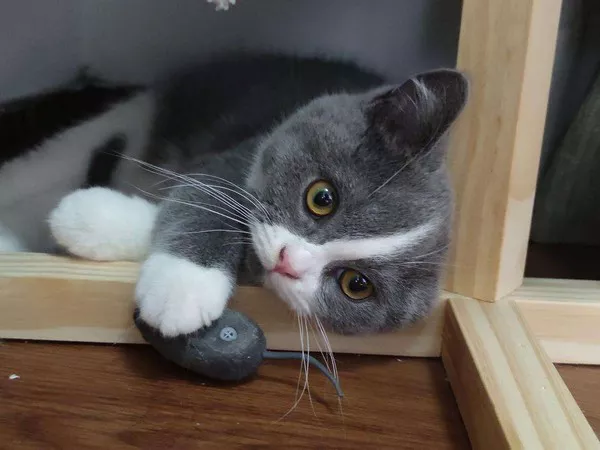The Cornish Rex, with its distinctive curly coat and playful personality, has captured the hearts of cat enthusiasts worldwide. But beyond their whimsical appearance lies a question potential owners often ask: How long do Cornish Rex cats live?
While pinpointing an exact lifespan for any individual cat is impossible due to various factors, understanding the breed’s general health, potential health concerns, and responsible care practices can help paint a clearer picture of what to expect.
A Dive into the Cornish Rex’s Lifespan
Generally, Cornish Rex cats are known to live between 12 and 16 years, with some reaching even older ages. This lifespan aligns with the average for most domestic cats, though individual experiences can vary. Several factors can influence a Cornish Rex’s longevity, including:
Genetics: Like all living beings, Cornish Rex cats inherit genes that can impact their susceptibility to certain health conditions. Responsible breeders screen for known genetic disorders, such as hypertrophic cardiomyopathy (HCM), to ensure healthier offspring.
Diet and Nutrition: Providing a balanced and complete diet tailored to the cat’s age and activity level is crucial for maintaining optimal health and potentially extending lifespan.
Exercise and Environment: Cornish Rex cats are energetic and playful. Providing them with ample opportunities for physical activity and mental stimulation through interactive toys, climbing structures, and regular playtime can contribute to their overall well-being and longevity.
Preventative Healthcare: Regular veterinary checkups, vaccinations, and parasite prevention are essential for catching potential health concerns early and ensuring a longer, healthier life.
Lifestyle: Indoor cats generally have a longer lifespan than outdoor cats, as they are less exposed to dangers like traffic accidents, infectious diseases, and predators.
Potential Health Concerns in Cornish Rex Cats
While Cornish Rex cats are generally considered a healthy breed, they can be prone to certain health issues, including:
Hypertrophic Cardiomyopathy (HCM): This heart condition, characterized by thickening of the heart muscle, can lead to heart failure. Regular cardiac screenings are recommended for early detection and management.
Patellar Luxation: This condition involves dislocation of the kneecap and can cause lameness.
Skin Allergies: Cornish Rex cats can be susceptible to skin allergies, which can lead to itching, hair loss, and secondary infections.
Hyperthermia: Due to their lack of a thick coat, Cornish Rex cats are more sensitive to cold temperatures and require warm environments to avoid hypothermia.
Being aware of these potential health concerns allows owners to be proactive in monitoring their cat’s health and seeking veterinary care at the first sign of any problems.
Maximizing Your Cornish Rex’s Lifespan: Tips for Responsible Care
By implementing responsible care practices, owners can significantly improve their Cornish Rex’s chances of living a long and healthy life. Here are some key tips:
Choose a reputable breeder: Selecting a responsible breeder who screens for genetic diseases and prioritizes the health and well-being of their cats is crucial.
Provide a balanced diet: Consult with your veterinarian to choose a high-quality cat food that meets your Cornish Rex’s specific nutritional needs.
Keep your cat active: Engage your Cornish Rex in regular playtime, provide stimulating toys, and consider leash training for safe outdoor exploration.
Maintain a warm environment: Ensure your home is warm enough for your Cornish Rex, especially during colder months.
Schedule regular veterinary checkups: Regular veterinary visits allow for early detection and treatment of potential health problems.
See Also:Can Cornish Rex Cats Go Outside? (The Important Reasons)
Stay informed: Educate yourself about the Cornish Rex breed and its potential health concerns to provide the best possible care.
By following these recommendations and showering your Cornish Rex with love and attention, you can create a strong foundation for a long and fulfilling life together.
Beyond Lifespan: The Joy of Owning a Cornish Rex
While understanding the potential lifespan of a Cornish Rex is important, it’s equally important to remember that each cat is an individual. Focusing solely on the number of years can detract from the joy and fulfillment of sharing your life with this unique and affectionate breed.
Cornish Rex cats are known for their playful and clownish personalities. They are highly intelligent, curious, and thrive on human interaction. Their mischievous antics and unwavering devotion bring laughter and warmth to their owners’ lives.
Owning a Cornish Rex is an enriching experience that goes beyond simply counting years. It’s about forging a deep bond with a remarkable feline companion and cherishing every moment of your shared journey.
Related Topics:
Can Cornish Rex Have Short Hair?
A Comprehensive Guide to Cornish Rex Diet
Why Cornish Rex Cats Command a Premium























